If you have British or even Irish roots, there is a good chance that you have some ancestors who lived and worked in London, at least for some of their lives. Britain’s capital was the largest and richest city in Europe, especially after the industrial revolution, and it sucked in labor from the rest of England, Wales, Scotland, Ireland and beyond. So here are 10 great and free London genealogy websites.
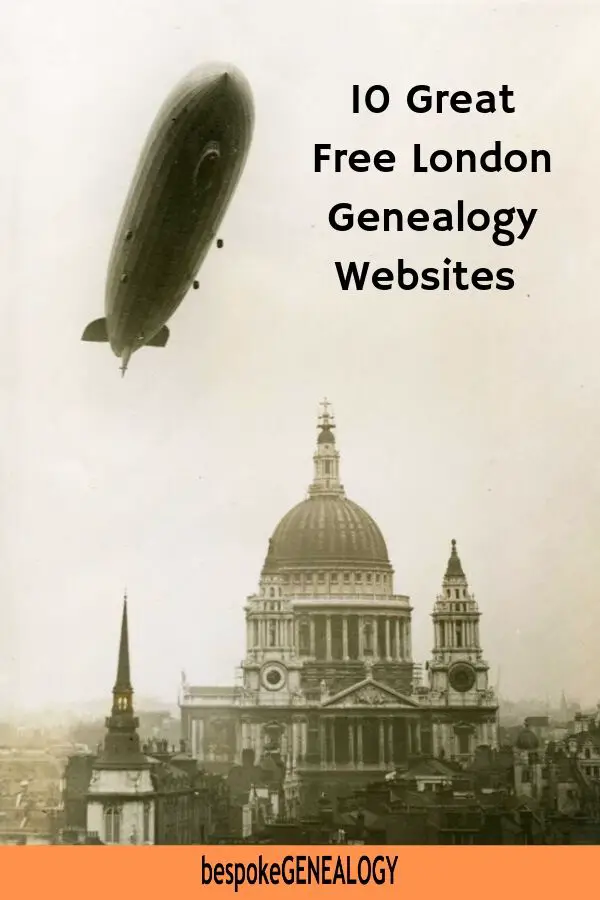
A previous post, How to find London Genealogy Resources, looked at the essential resources you need for London research like vital records and census returns. This article explores websites that can add layers of detail to the lives of your London ancestors.
Charles Booth’s London
Go to Charles Booth’s London website
Charles Booth, a Victorian businessman, organised a survey into “London Life and Labour” which ran from 1886 until 1903. It looked at three aspects of life in the capital: poverty, industry and religious influences. Booth is probably best known for the poverty maps that this survey produced. These maps are incredibly detailed and are color coded showing the level of poverty or wealth in residential streets. There were seven classifications:
- Black – Lowest class. Vicious, semi-criminal.
- Dark Blue – Very poor, casual. Chronic want.
- Light Blue – Poor. 18 to 21 shillings a week for a moderate family.
- Purple – Mixed. Some comfortable others poor.
- Pink – Fairly comfortable. Good ordinary earnings.
- Red – Middle class. Well-to-do.
- Yellow – Upper-middle and upper classes. Wealthy.
Also on the website are the notebooks used to record the data.
If you have ancestors who lived in London during the Victorian or Edwardian periods, this site is essential for getting an understanding of their living conditions.
Collage: the London Picture archive
This website contains over 250,000 photographs, prints and drawings as well as more than 1000 maps relating to Greater London and the surrounding counties. They come from the collections of the
London Metropolitan Archives and the Guildhall Art Gallery.
British History Online, London Hearth tax Records
The Hearth Tax (often known as the chimney tax) was in force in England and Wales between 1662 and 1689 and used mainly to pay for the Court of Charles II after the Restoration. This was a property tax with payment based on the number of hearths in a building. Initially, everyone was liable, but later exemptions were made for those too poor to be able to pay.
Transcriptions of hearth tax records for the City of London and the county of Middlesex can be found on this website. These records are a very useful early genealogy resource.
The Proceedings of the Old Bailey, 1674-1913
The Proceedings were printed accounts of trials that took place at the Old Bailey; the Central Criminal Court in London, between 1674 and 1913. They have been digitized and are fully searchable on this site. They contain details of nearly 200,000 criminal trials held between these years.
There is a very useful getting started video on the website which I’d recommend watching before you get stuck in. Even if you don’t have any criminal ancestors, or victims of crime, your relatives may have been called as witnesses. Many of the cases are fascinating, so it’s good to dip in and see what you find.
London Lives
Go to the London Lives website
London Lives focuses on the poor and working classes in the metropolis. It consists of more than 240,000 manuscripts and printed pages from eight archives in London as well as another fifteen data sets from other projects. These primary sources from 18th century London are fully searchable and include criminal court, coroner and hospital records.
London Screen Archives
The London Screen Archives preserves the capitals history on film. It is a collaboration of over 70 organizations. Many short films can be viewed on this site.
London Transport Museum Online Collections
Go to the London Transport Museum
Explore the history of transport in London. Many of the collections, including photographs and posters can be viewed online.
London’s Pulse: Medical Officer of Health reports 1848-1972
Go to MOH reports at the Wellcome Library
These reports were produced each year by district Medical Officers of Health between 1848 and 1972. They give a snapshot of the state of health in a district as they report on birth and death rates, infant mortality, occurrences of infectious and other diseases, and a general statement on the health of the local population.
Pioneering Nurses
Go to the Pioneering Nurses website
This collection, from King’s College, London, contains a database of the first nurses to sign up to the Royal British Nurses’ Association professional register in 1890.
For more great free resources see: 120 Free Genealogy Websites
Happy researching!
Please pin a pin to Pinterest:

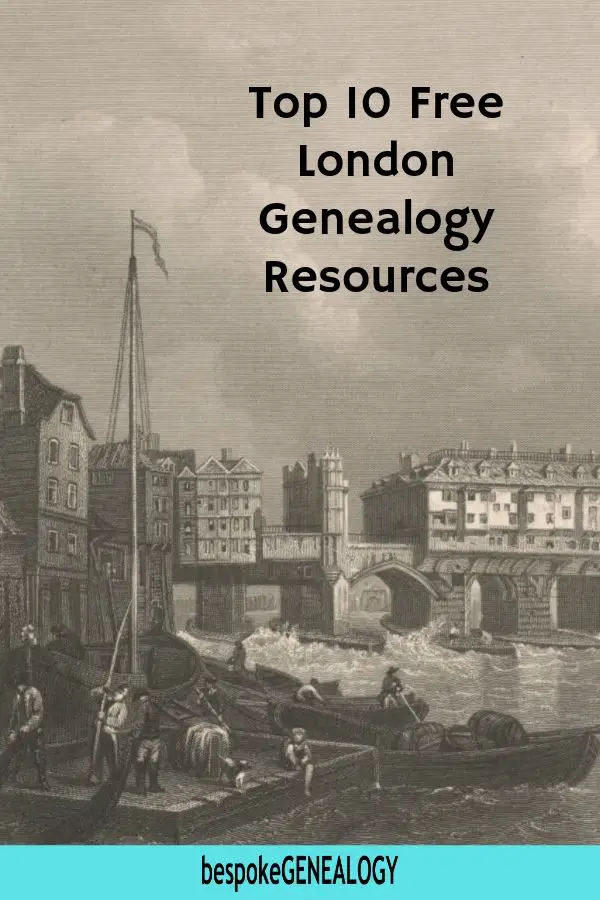
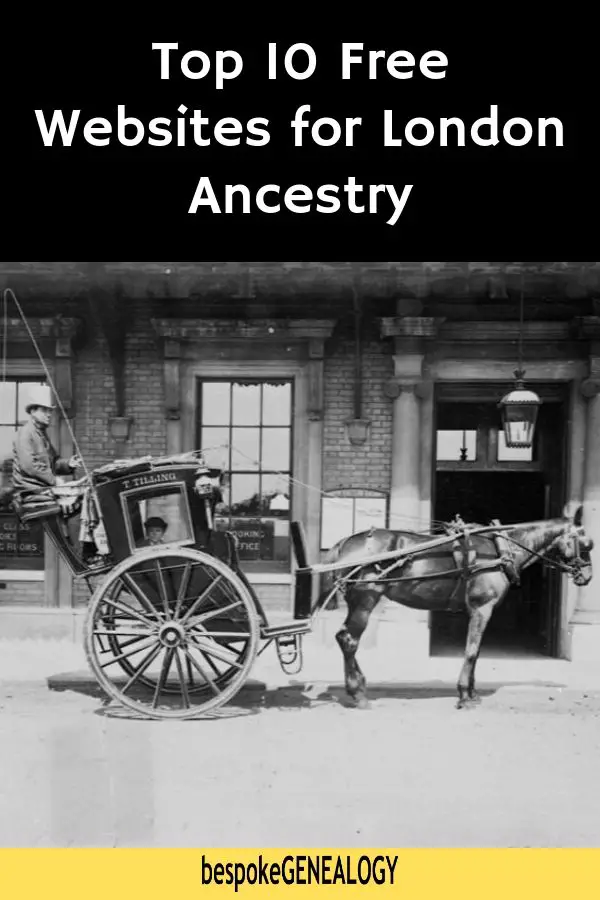
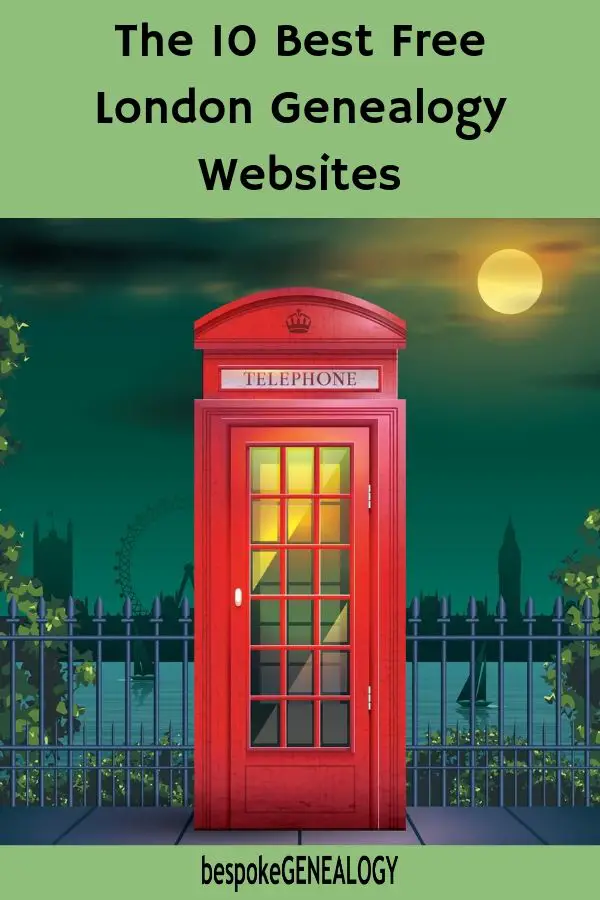
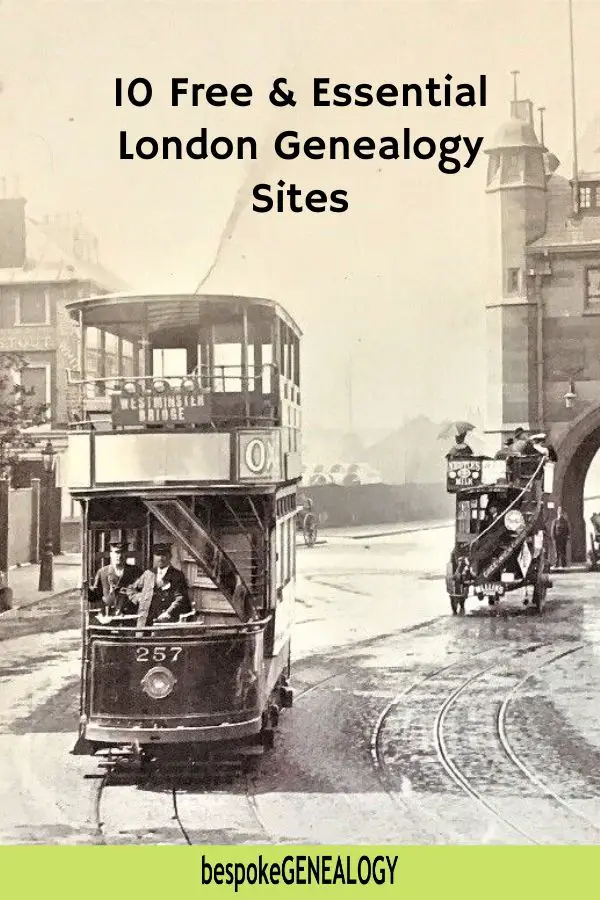
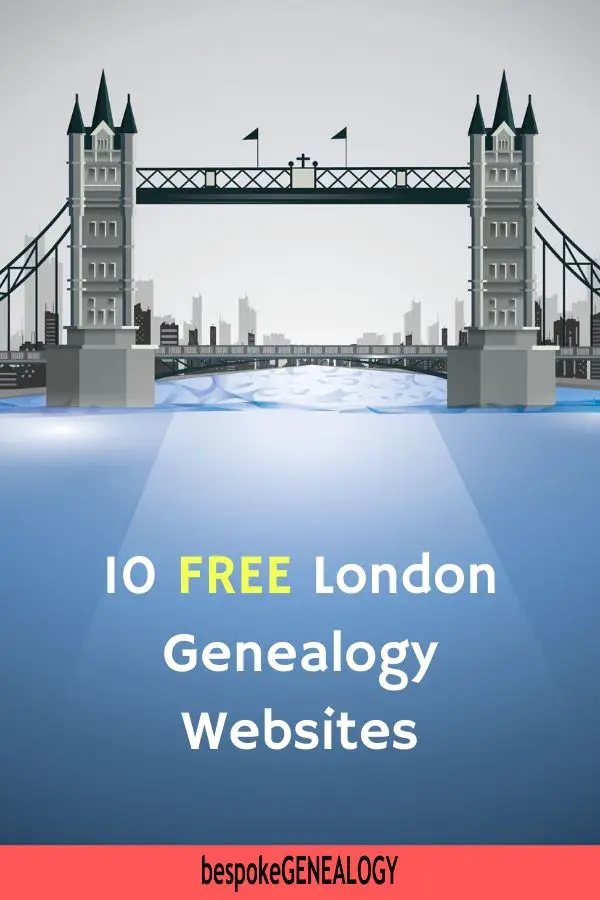
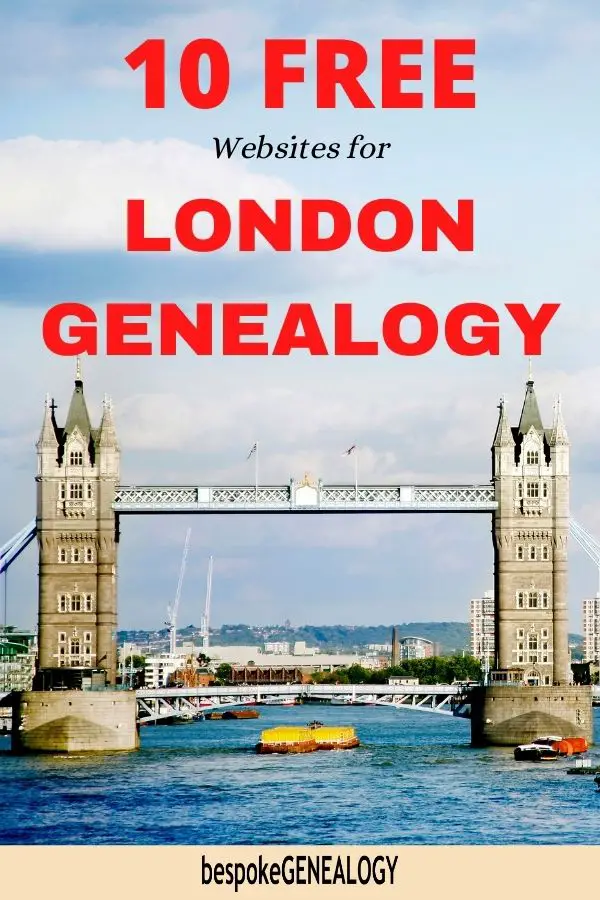
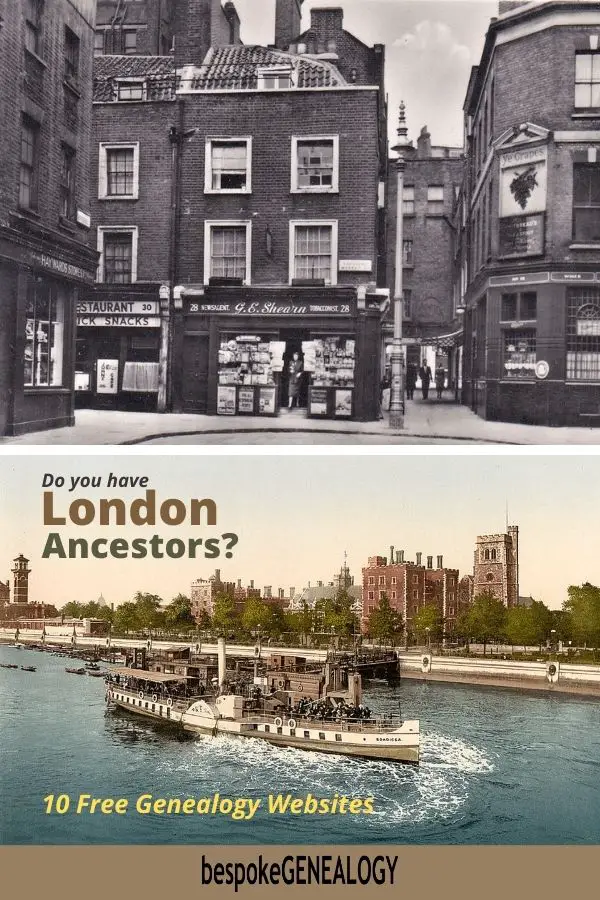
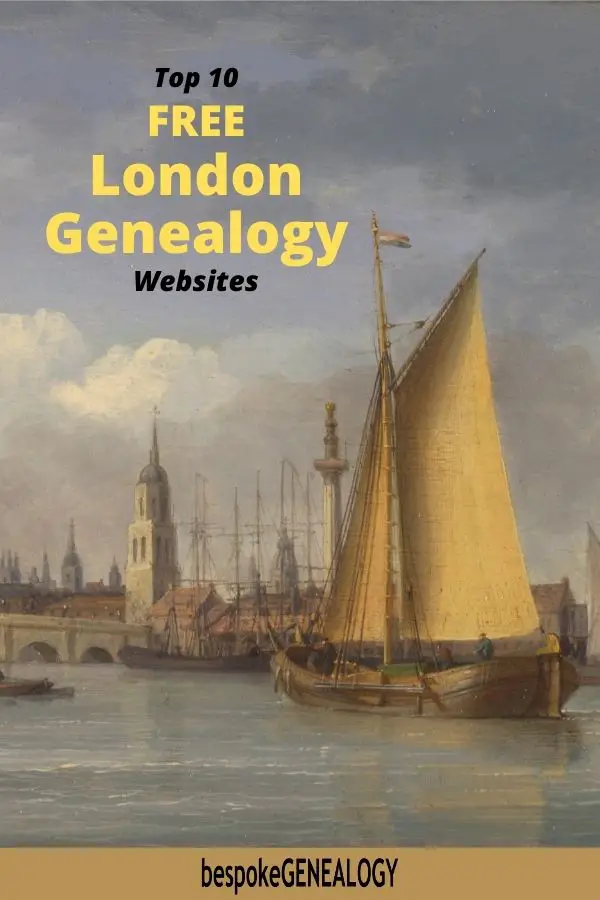
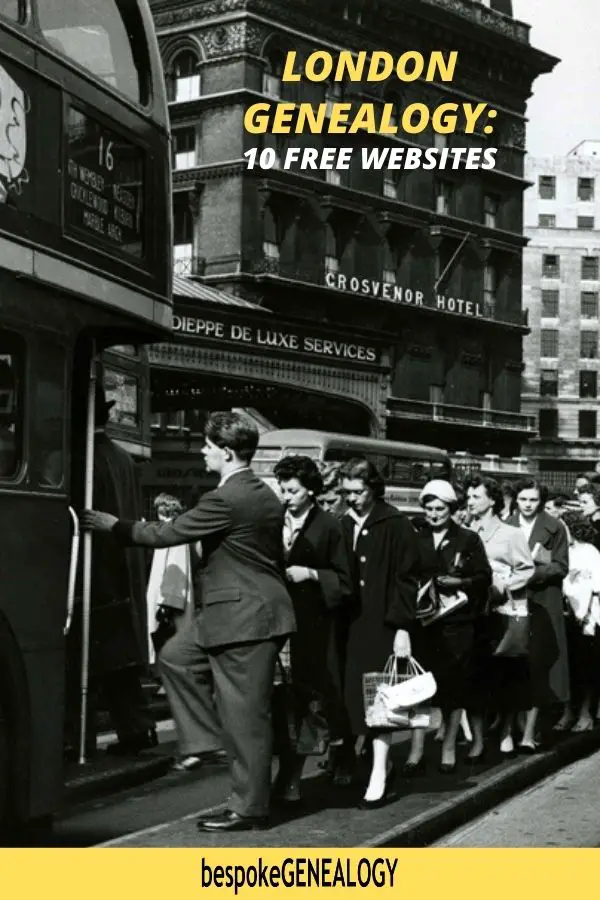
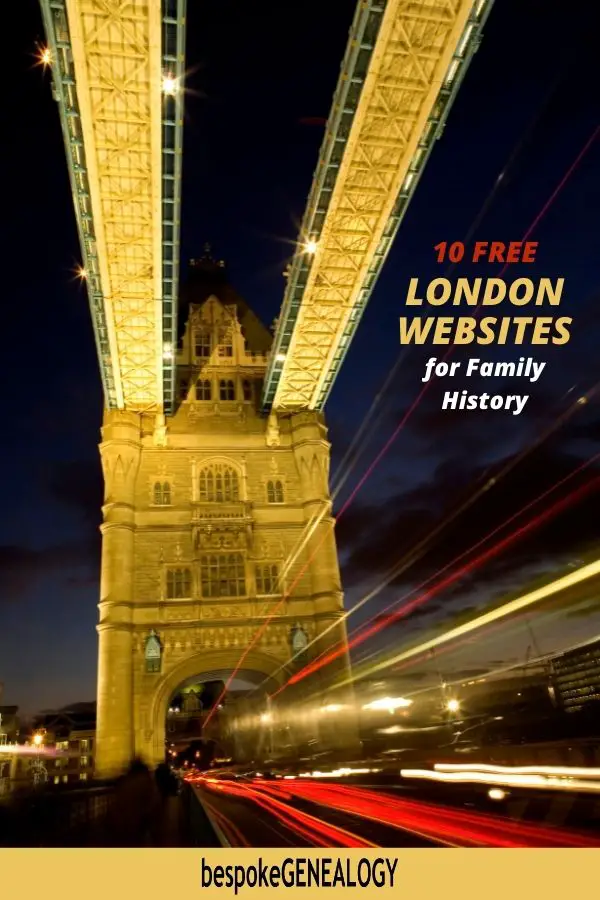
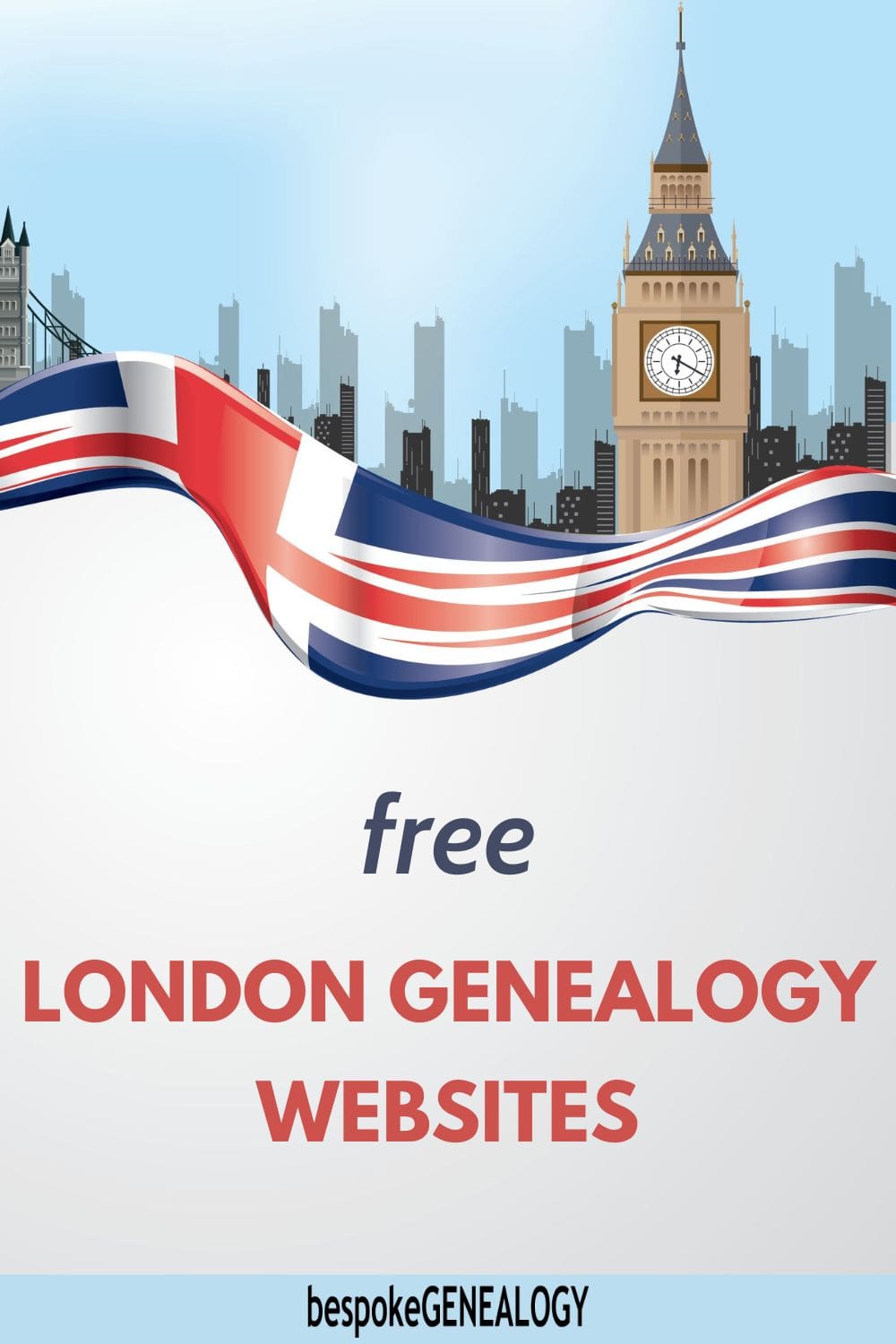
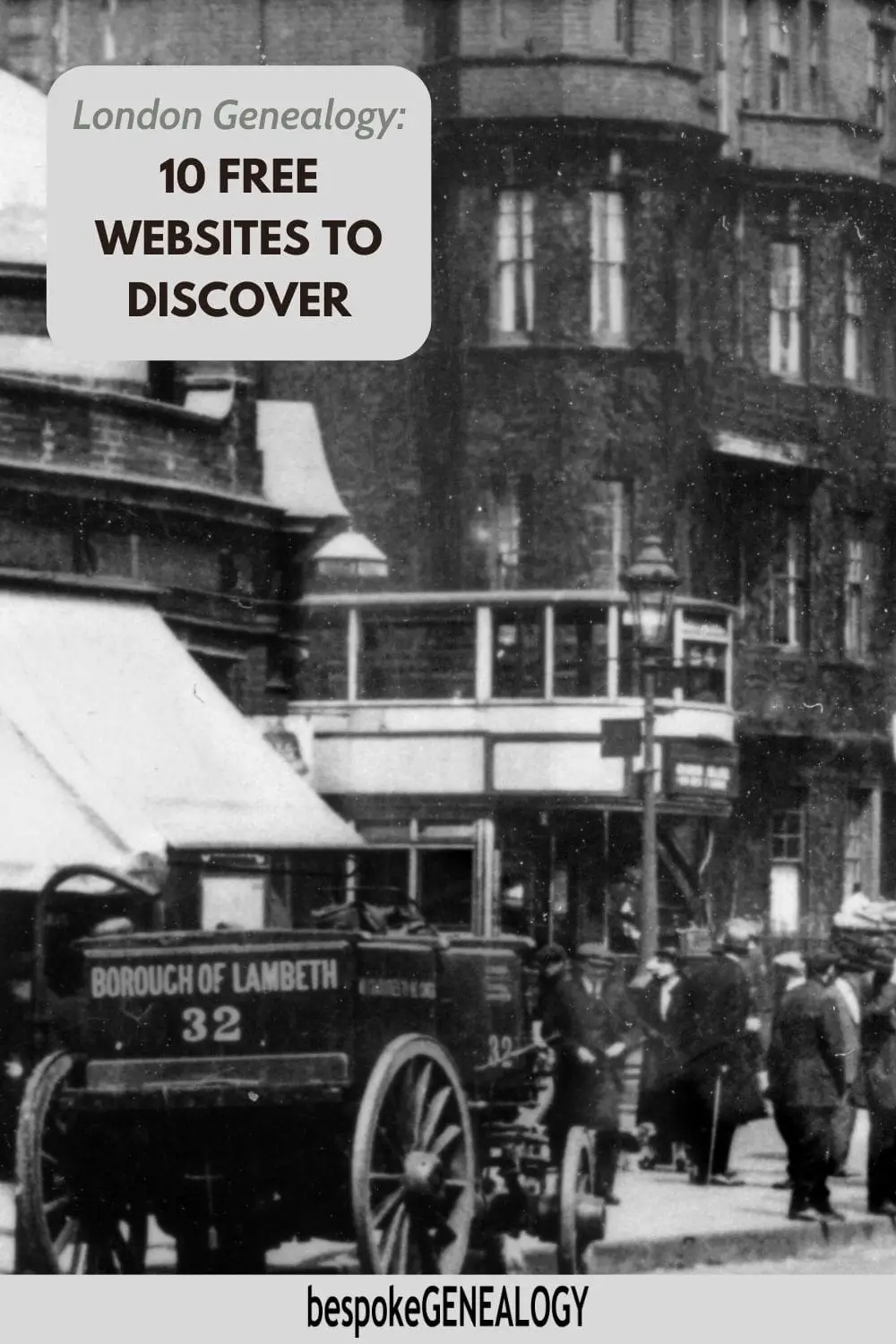

Hi, my name is daryl traster
I’m looking for a history of my family traster
Please help me to find the connections in England in London. There is a connection there. Do you think you could look at the records to see if there is a connection and so thank you I hope you can help me out and my name is Daryl traster
Please do this for free donation
Hi Daryl,
Ancestry has a good collection of London records, so I recommend looking there. I just did a quick search for the surname Traster in London and there are 782 pages of results. I have no way of knowing how or if these people are related to you without doing some major research. So, you would have to research your family back to find a link. If you don’t have an account with Ancestry, you can sign up for a free 14 day trial. Alternatively, you may be able to access Ancestry at your local library for free; it’s worth checking.
I’m afraid that I am not in a position to do major research projects for free.
Good luck